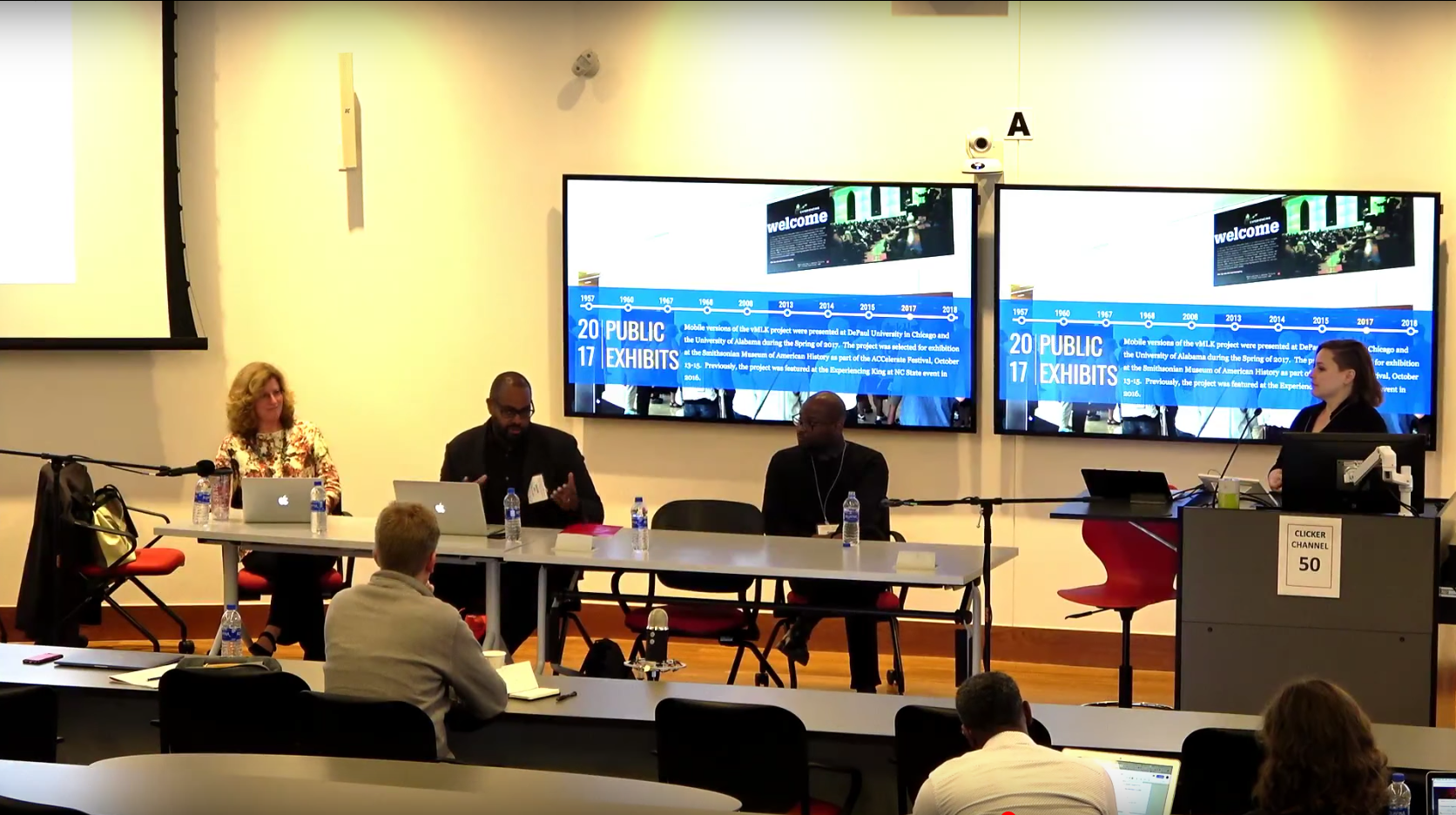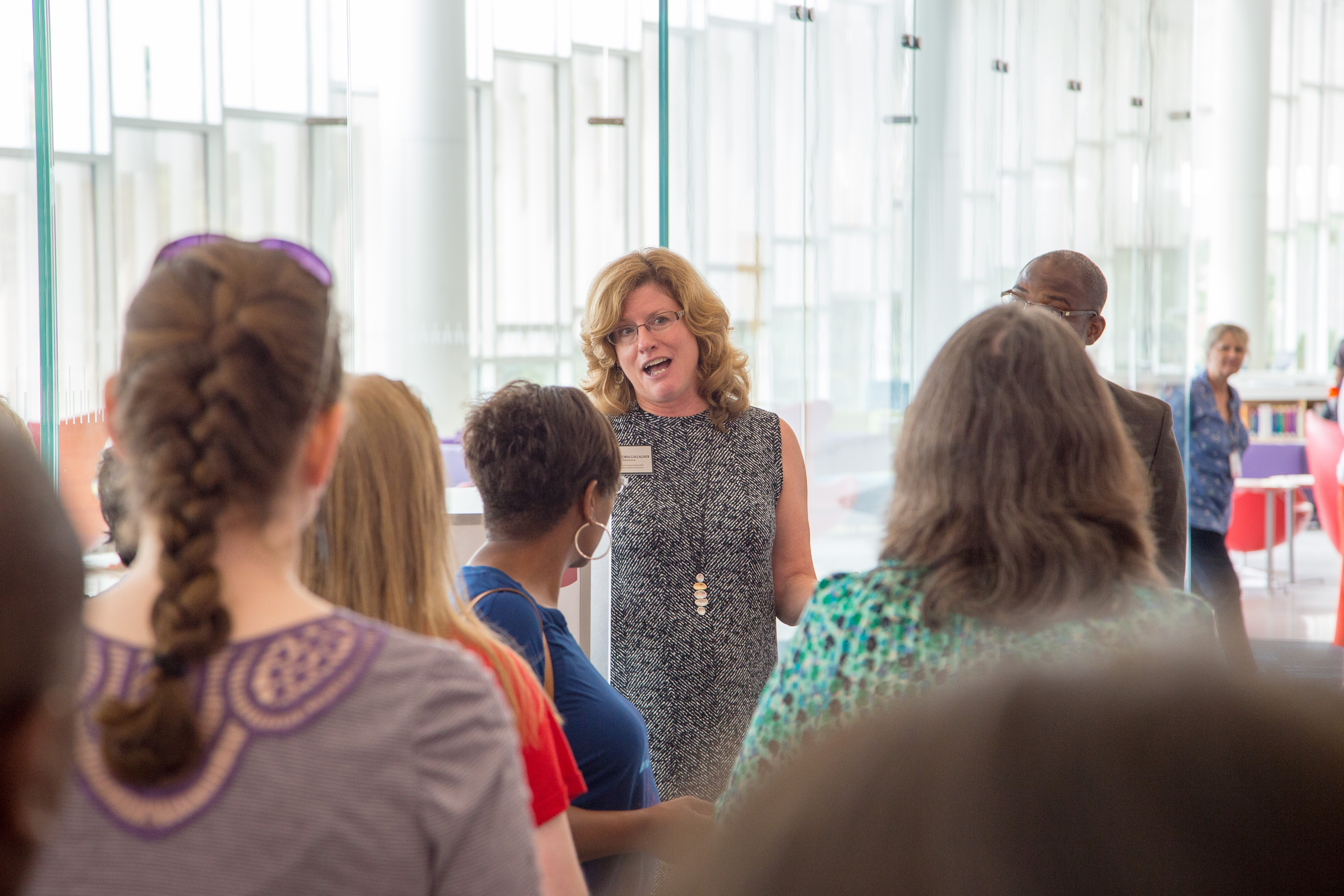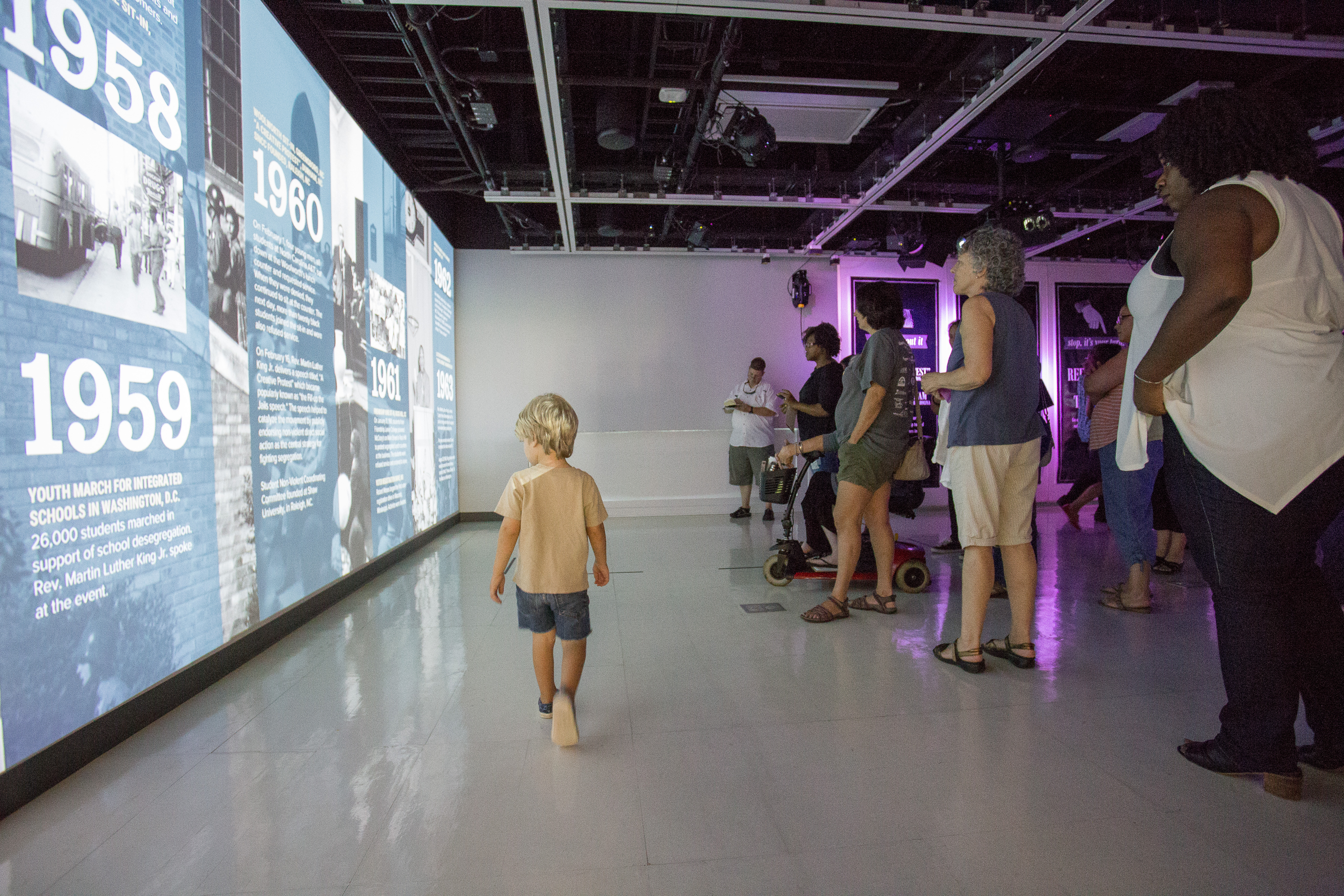Scholarship
Scholarship
The Virtual Martin Luther King Project contributes to contemporary humanities scholarship through emphasizing an understanding of context, providing direct engagement with the importance of location, highlighting the content of this speech in relation to our contemporary moment, and illuminating the material consequences of this experience.
Cite this page as: vMLK Project Team. Virtual Martin Luther King, Jr. Project. 2019. Retrieved from https://vmlk.chass.ncsu.edu/
Civil Rights History and Rhetorical Digital Humanities
The tension between rhetoric as both textual/symbolic and bodily-enacted/material is as central, we would argue, to the theory and practice of rhetoric as the oscillation described by Richard Lanham. Lanham argues that the “founding contradiction of rhetoric namely, the dual nature of language as both transparent and opaque and of the self as both central and social” is particularly significant in an electronic or digital age (p. 82). By inviting visitors into the vMLK experiences of public address, the project structures a comparative rhetorical stance such that visitors reflect on the symbolic aspects and impact of words, text, and discourse as well as the embodied experience and consequence of sound, sight, and movement all of which they experience as interwoven into a unified whole. Through this project, our team has worked to theorize rhetorical digital humanities and technologies of recovery in presentations, public lectures, exhibitions, and scholarly journals.


